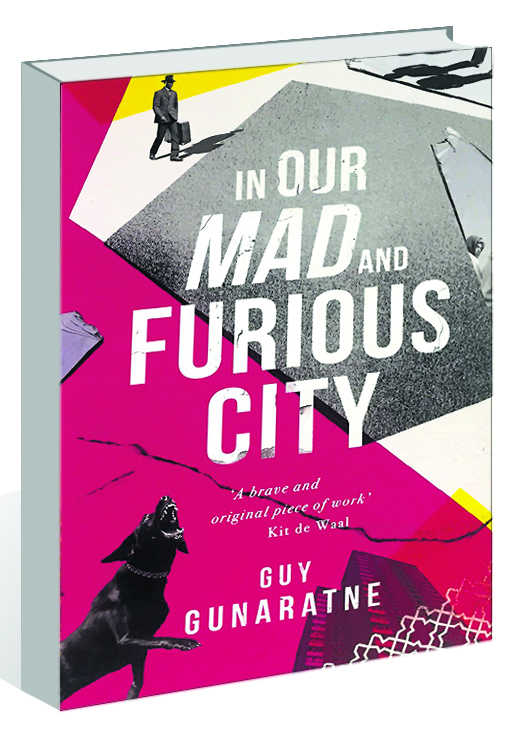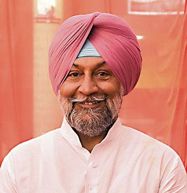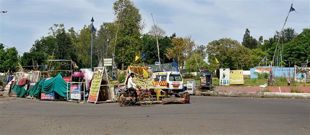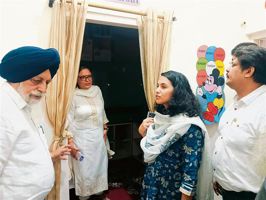
In Our Mad and Furious City by Guy Gunaratne. Hachette. Pages 292. Rs 699
Vikrant Parmar
Three young men — Selvon, Ardan and Yusuf — growing under the towers of Stones Estate, in London suburbs, want life to be a normal course, where peace reigns and happiness pervades. Sadly, all their hopes are shattered to smithereens after an off-duty British soldier is slaughtered on the street by a Black man. Chaos ensues as riots engulf the entire city and reduces it to rubble — ‘fury was like a fever in the air’ in ‘a young nation of mongrels’.
Amid all this mayhem, the trio’s will to survive is put to test — ‘in this bone-cold London city’. What binds the three friends together though is their existential reality; they stick with each other till the denouement.
Selvon is deeply focused on his fitness — something he believes will catapult him into a world better than what he exists in. Ardan, who is from an Ulster Catholic background, aspires to be a ‘grime’ performer; he is a talented lyricist — music is his escape from the daily din. For Yusuf, there is no such option, as he struggles with the pain of the recent death of his father while trying to protect the mosque, where the deceased was the Imam. Yusuf also has to deal with the ignominy of a disgraced elder brother, Irfan.
Another remarkable narrative innovation is how the author connects the youngsters with the two elderly voices — Selvon’s disabled father Nelson, from Montserrat, and Ardan’s Irish mother Caroline — who relive their own strife-torn pasts, often. Their recollections are graphic, yet they slow down the pace of the story considerably.
The plot meanders during the first half of the narrative, as the action takes place in just over two days. Yet, the powerful ending covers it up all, more than enough, with pregnant phrases such as ‘My ears could not figure which sounds came from my breaking body and which from the falling world outside’.
The characters talk in a patois — ‘yuno, sorta, ennet, bredda, nuttan’ — something that needs concentration to understand at times. However, since the story is written in the language of ‘those with elsewhere in their blood’, the vernacular style is warranted. And, the young author has handled it with dexterity. Kudos!



























